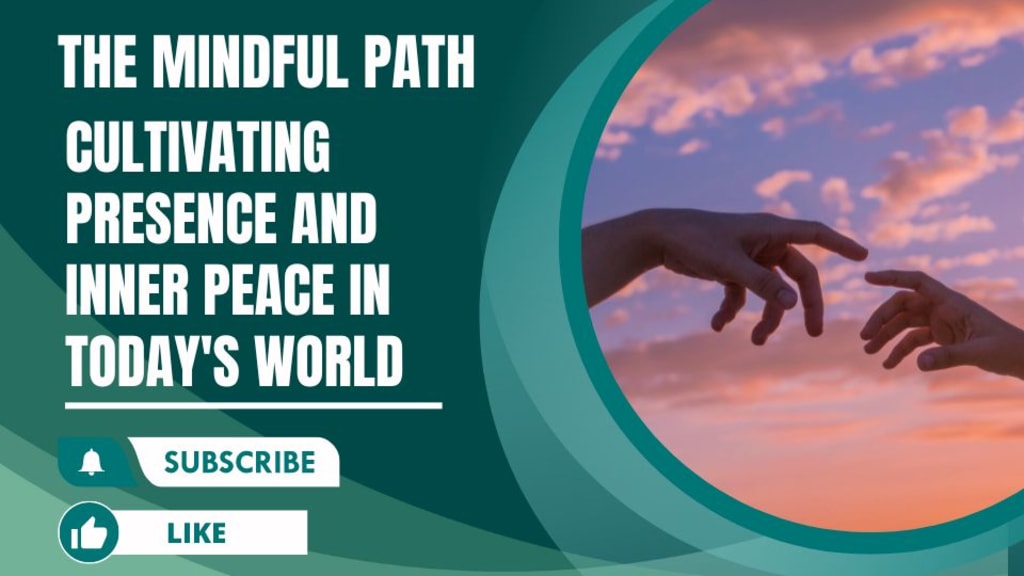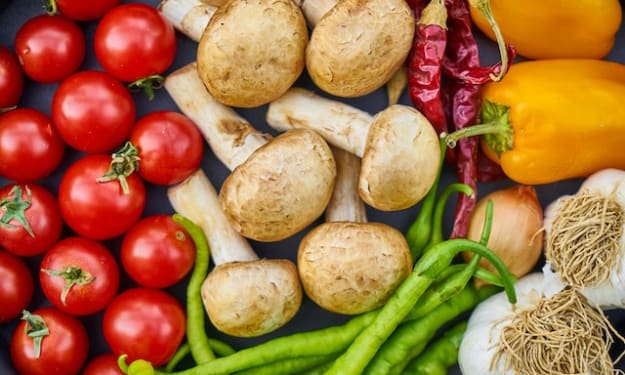The Mindful Path: Cultivating Presence and Inner Peace in Today's World
The Benefits of Mindful Living

The Mindful Path: Cultivating Presence and Inner Peace in Today's World
Introduction
In the fast-paced world we live in, finding moments of peace and tranquility has become a precious commodity. The constant buzz of technology, the demands of work and personal life, and the never-ending stream of information can leave us feeling overwhelmed and disconnected from ourselves. It is in these moments that the art of mindful living can provide solace, helping us cultivate presence and inner peace. In this article, we will explore the essence of mindful living, its benefits, and practical techniques to incorporate mindfulness into our daily lives.
Understanding Mindful Living
At its core, mindful living is about being fully present in the moment, non-judgmentally aware of our thoughts, emotions, and sensations. It is a state of conscious awareness that allows us to fully engage with our experiences, rather than being lost in the past or consumed by worries about the future. Mindful living invites us to observe and accept the present moment as it is, without attachment or resistance.
The Benefits of Mindful Living
Practicing mindful living can have a profound impact on our well-being and overall quality of life. Here are some of the main benefits:
1. Reduced Stress: Mindfulness helps us develop resilience and manage stress more effectively. By cultivating present-moment awareness, we can break free from the cycle of ruminating on past events or worrying about the future, reducing the impact of stress on our minds and bodies.
2. Improved Mental Clarity: When we are fully present, our minds become clearer and more focused. Mindful living enhances our ability to pay attention, make decisions, and respond to situations with greater clarity and wisdom.
3. Enhanced Emotional Well-being: Mindfulness allows us to develop a non-judgmental attitude towards our thoughts and emotions. This acceptance fosters emotional well-being, as we learn to observe our feelings without getting caught up in them or reacting impulsively.
4. Deeper Connection: By being fully present with others, we can cultivate deeper connections and meaningful relationships. Mindful listening and genuine presence create space for understanding, empathy, and compassion.
Practical Techniques for Mindful Living
Incorporating mindfulness into our daily lives doesn't have to be complicated. Here are a few practical techniques to help you cultivate mindful living:
1. Mindful Breathing
Take a few moments each day to focus on your breath. Observe the sensations of inhaling and exhaling, bringing your attention back to the breath whenever your mind wanders. This simple practice anchors you to the present moment and calms the mind.
2. Body Scan Meditation
Lie down or sit in a comfortable position and bring your attention to different parts of your body, starting from the top of your head and gradually moving down to your toes. Warn any feelings, pressures, or ranges of easing. This practice helps cultivate body awareness and releases physical tension.
3. Mindful Eating
Engage your senses fully while eating. Warn the shades, touches, and tastes of your food. Chew slowly and savor each bite. Pay attention to the sensations of hunger and fullness. Mindful eating brings awareness to our relationship with food and promotes healthier eating habits.
4. Mindful Movement
Whether it's yoga, walking, or any other physical activity, bring mindfulness to your movements. Notice the sensations in your body, the rhythm of your breath, and the environment around you. Engaging in mindful movement fosters a deeper mind-body connection.
5. Digital Detox
Take regular breaks from screens and the digital world. Disconnect from technology and engage in activities that bring you joy and presence. Spend time in nature, read a book, or engage in hobbies that nourish
Pay your full attention to the person talking, without disturbing or thinking about your reaction your soul. Disconnecting from the constant stimulation of technology allows you to reconnect with yourself and the present moment.
6. Mindful Listening
Practice active listening in your conversations with others. Take a second day by day to imitate on the things you are thankful for. Essentially listen to their words, tone, and non-verbal cues. Cultivating mindful listening strengthens relationships and fosters deeper understanding.
7. Gratitude Practice
Take a moment each day to reflect on the things you are grateful for. This practice shifts your focus to the positive aspects of life, fostering a sense of appreciation and contentment. Write down or mentally acknowledge three things you are grateful for each day.
8. Mindful Reflection
Set aside time for self-reflection. Journaling or engaging in introspective activities helps you become more aware of your thoughts, emotions, and patterns of behavior. It allows you to gain insight, make conscious choices, and cultivate personal growth.
The Transformative Power of Mindful Living
Mindful living is not just a practice; it is a way of life. By embracing the principles of mindfulness and incorporating them into our daily routines, we can experience profound transformations. We become more attuned to the present moment, finding joy and beauty in the simplest of things. We develop a deeper understanding of ourselves and others, fostering empathy and compassion. Mindful living empowers us to navigate life's challenges with grace and resilience.
So, embrace the art of mindful living and embark on a journey of self-discovery and inner peace. Start with small steps, incorporating mindfulness into your daily activities. Cultivate present-moment awareness, nurture your connections, and prioritize self-care. As you deepen your practice, you will discover the profound impact it has on your overall well-being and the richness it brings to your life.
Remember, mindfulness is a lifelong journey. Be patient and kind to yourself as you navigate the ups and downs. Celebrate each moment of presence and let go of judgment and expectations. May your path be filled with peace, wisdom, and the profound joy of mindful living.
Frequently Asked Questions (FAQs)
1. Can anyone practice mindful living? Absolutely! Mindful living is accessible to everyone. It doesn't require any special skills or religious beliefs. It is a practice that can benefit people from all walks of life.
2. How long does it take to see the benefits of mindful living? The benefits of mindful living can be experienced even in the early stages of practice. However, like any skill, it deepens with regular and consistent practice. Give yourself time and patience to fully embrace the journey.
3. Can mindfulness help with anxiety and stress management? Yes, mindfulness has been shown to be effective in reducing anxiety and managing stress. By cultivating present-moment awareness and developing a non-judgmental attitude, mindfulness helps shift our relationship with stress and anxiety.
4. Is mindfulness a form of meditation? Mindfulness and meditation are closely related, but they are not exactly the same. Mindfulness can be practiced in formal meditation sessions, but it can also be integrated into daily activities and moments of pause.
5. Can children benefit from practicing mindfulness? Yes, mindfulness can be beneficial for children as well. It can help improve focus, emotional regulation, and overall well-being. There are specific mindfulness techniques designed for children that make it engaging and age-appropriate.
Now, take a deep breath, bring your awareness to the present moment, and embark on your journey of mindful living. The path awaits you, filled with endless possibilities for growth, connection, and inner peace.
About the Creator
Ghulam Abbas
Skilled content writer with 15 years' experience in humanities and motivation. Illuminating insights in literature, history, philosophy, and culture, connecting readers to human experiences. Expertise in motivational writing.
Enjoyed the story? Support the Creator.
Subscribe for free to receive all their stories in your feed. You could also pledge your support or give them a one-off tip, letting them know you appreciate their work.





Comments
There are no comments for this story
Be the first to respond and start the conversation.